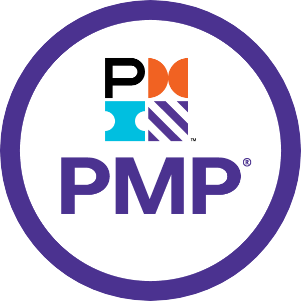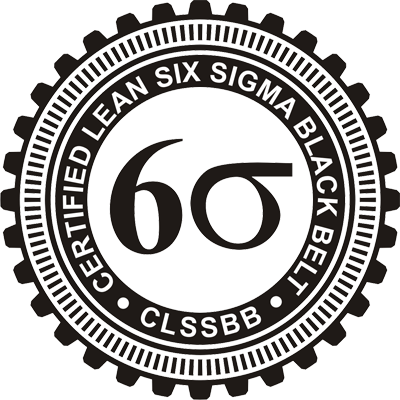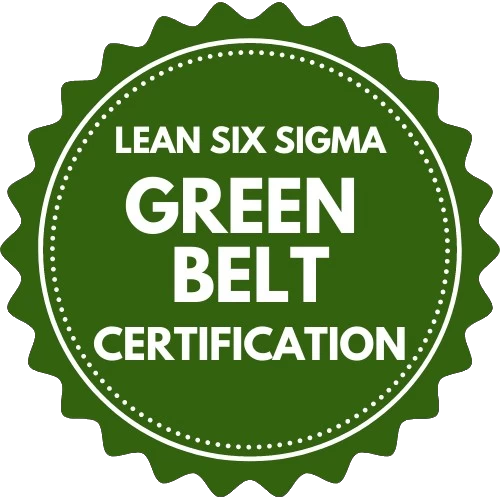Project Management Professionals (PMP Certification)

Live Virtual Training Program
- Weekday Classes: Nov 19 - 22, 2024|Dec 17 - 20, 2024|Jan 28 - 31, 2025
- Weekend Classes: Nov 16 - 24, 2024|Dec 14 - 22, 2024|Jan 25 - Feb 02, 2025
- Timing: 09:00 AM - 05:00 PM (CST)
- Contact Person: Richard Howe (richard.howe@traduateglobal.com)
A PMP (Project Management Professional) training course is designed to prepare individuals for the PMP certification exam, which is a globally recognized credential for project managers. The training typically covers the principles and practices outlined in the PMBOK (Project Management Body of Knowledge) guide, which is the standard framework for managing projects.
The PMP (Project Management Professional) certification is for seasoned project managers who oversee every facet of project execution, including leading and managing multidisciplinary teams. It's for those looking to solidify their knowledge, improve their management skills, and enhance their career prospects.
PMP certification benefits individuals who want to pursue careers in project management or who want to demonstrate their commitment to the profession. The credential can also help employers identify candidates with the necessary skills and knowledge to succeed in Project Management roles.
1. Introduction to Project Management
- Definition and characteristics of a project
- Project life cycle and phases
- Project management processes and methodologies
- Role and responsibilities of a project manager
2. Project Management Framework
- PMI processes and knowledge areas.
- Project constraints: scope, time, cost, quality, etc.
- Stakeholder identification and management.
3. Project Integration Management
- Developing project charter
- Developing project management plan
- Directing and managing project execution
- Monitoring and controlling project work
- Performing integrated change control
- Closing project or phase
4. Project Scope Management
- Planning scope management
- Collecting requirements
- Defining scope
- Creating work breakdown structure (WBS)
- Validating scope
- Controlling scope
5. Project Schedule Management
- Planning schedule management
- Defining and sequencing activities
- Estimating activity durations
- Developing and controlling the schedule
6. Project Cost Management
- Planning cost management
- Estimating costs
- Determining budget
- Controlling costs
7. Project Quality Management
- Planning quality management
- Performing quality assurance
- Controlling quality
8. Project Resource Management
- Planning resource management
- Estimating activity resources
- Acquiring resources
- Developing and managing the team
- Controlling resources
9. Project Communication Management
- Planning communications management
- Managing communications
- Monitoring communications
10. Project Risk Management
- Planning risk management
- Identifying risks
- Performing qualitative and quantitative risk analysis
- Planning risk responses
- Monitoring and controlling risks
11. Project Procurement Management
- Planning procurement management
- Conducting procurements
- Controlling procurements
12. Project Stakeholder Management
- Identifying stakeholders
- Planning stakeholder engagement
- Managing stakeholder engagement
- Monitoring stakeholder engagement
13. Professional and Social Responsibility
- Code of ethics and professional conduct
- PMI Talent Triangle® and professional development
Attending PMP certification training offers several key advantages, especially for professionals seeking to advance their careers in project management. Here are the top reasons why you should consider enrolling:
1. Globally Recognized Credential
- The PMP (Project Management Professional) certification is recognized worldwide as a standard of excellence in project management. It demonstrates that you have the knowledge, skills, and experience to effectively manage projects.
2. Career Advancement Opportunities
- PMP-certified professionals often have access to better job opportunities, promotions, and higher salaries. Employers highly value certified project managers because of their proven expertise and ability to deliver projects successfully.
3. Higher Earning Potential
- According to PMI’s Earning Power Salary Survey, PMP-certified professionals earn significantly more than their non-certified counterparts. On average, PMP holders report salaries that are 20% higher than those without the certification.
4. Mastery of Project Management Skills
- PMP training provides comprehensive knowledge of the PMBOK (Project Management Body of Knowledge) and equips you with advanced tools and techniques to manage projects efficiently. You’ll gain a deeper understanding of project processes, methodologies, and best practices.
5. Increased Job Security
- In an increasingly competitive job market, PMP certification sets you apart from other candidates. Employers prefer certified professionals, making it a valuable credential to maintain job security, especially in industries where project management is critical.
6. Enhanced Leadership and Decision-Making Skills
- PMP training emphasizes leadership, communication, and decision-making, which are essential for guiding teams and handling complex projects. You’ll become a more effective leader, capable of motivating and leading teams to success.
7. Network of Global Professionals
- By attending PMP training and becoming PMP certified, you gain access to the PMI (Project Management Institute) global network of professionals. This opens up opportunities for mentorship, learning, and career development through industry events, webinars, and local chapters.
8. Validation of Experience and Knowledge
- To earn PMP certification, you need both education and professional project management experience. The PMP credential validates that you meet strict requirements, which enhances your credibility with employers, clients, and peers.
9. Improved Project Performance
- Training for PMP certification equips you with best practices in project management, including risk management, cost control, and stakeholder engagement. This results in more efficient project execution, higher success rates, and improved outcomes for your projects.
10. Preparation for Agile and Hybrid Projects
- With the growing demand for agile project management skills, PMP training covers agile practices alongside traditional methodologies. This prepares you to handle projects in both agile and hybrid environments, which is increasingly common in today’s workplaces.
11. Continuous Learning and Professional Development
- PMP certification requires ongoing professional development to maintain. This encourages you to stay updated on the latest trends, tools, and practices in project management, ensuring that your skills remain relevant throughout your career.
12. Boost Confidence
- Having PMP certification gives you confidence in your ability to manage and lead projects of various sizes and complexities. The rigorous exam and training process ensure that you are well-equipped to handle any project management challenges.
Overall, PMP certification training is a powerful investment in your professional development that can lead to better career prospects, higher earnings, and enhanced skills in managing successful projects.
In a PMP (Project Management Professional) certification training, you'll learn a comprehensive range of skills, tools, and techniques needed to effectively manage projects. Here’s an overview of the key areas you’ll cover during the training:
1. Project Management Framework and Fundamentals
- Key Concepts: Understanding project management terms, concepts, and processes based on PMI's PMBOK (Project Management Body of Knowledge) guide.
- Project Life Cycle: Exploring the stages of a project’s life cycle from initiation to closure.
- Project vs. Operations: Understanding the difference between project management and ongoing business operations.
- Role of a Project Manager: Learning the responsibilities, skills, and leadership roles of a project manager.
2. Five Process Groups of Project Management
- Initiating: How to define the project scope, stakeholders, and objectives, and get formal approval to start the project.
- Planning: How to create detailed project plans, including schedules, budgets, resources, risk assessments, and communication plans.
- Executing: Strategies for coordinating team members and resources to achieve the project goals according to the plan.
- Monitoring and Controlling: Techniques to track the project’s progress, control changes, and ensure project performance aligns with the plan.
- Closing: Steps to complete the project, deliver the final product, and formally close the project with all stakeholders.
3. Ten Knowledge Areas
You'll delve into the following 10 project management knowledge areas, each of which is integral to running successful projects:
- Project Integration Management: Coordinating all aspects of the project to ensure successful outcomes.
- Project Scope Management: Defining and controlling what is and isn’t included in the project.
- Project Schedule Management: Developing a schedule and ensuring that the project stays on track.
- Project Cost Management: Estimating, budgeting, and controlling project costs.
- Project Quality Management: Ensuring the project meets the required quality standards.
- Project Resource Management: Managing team members and physical resources efficiently.
- Project Communication Management: Facilitating clear and effective communication between stakeholders.
- Project Risk Management: Identifying, analyzing, and mitigating potential project risks.
- Project Procurement Management: Managing the procurement of goods and services from external vendors.
- Project Stakeholder Management: Identifying and managing relationships with project stakeholders.
4. Project Management Tools and Techniques
- Work Breakdown Structure (WBS): Breaking down the project into smaller, manageable tasks.
- Gantt Charts and Network Diagrams: Visual tools to represent project schedules and dependencies.
- Critical Path Method (CPM): Determining the longest path of dependent tasks to ensure timely completion.
- Earned Value Management (EVM): Techniques for measuring project performance and progress in terms of cost and schedule.
5. Risk and Change Management
- Risk Management: Identifying, assessing, and responding to project risks with mitigation strategies.
- Change Control: Managing changes to project scope, time, and costs, while ensuring project stability.
6. Agile Project Management
- Agile Practices: Understanding key agile concepts, including iterative development, Scrum, Kanban, and other agile methodologies.
- Hybrid Approaches: How to integrate agile principles into traditional project management practices when managing projects in hybrid environments.
7. Project Leadership and Team Dynamics
- Leadership Skills: Developing leadership qualities like decision-making, problem-solving, and team motivation.
- Stakeholder Engagement: Engaging stakeholders effectively to ensure project support and success.
- Conflict Resolution: Techniques for resolving conflicts within teams and with stakeholders.
8. Budgeting and Cost Control
- Budget Planning: Estimating costs, setting up budgets, and forecasting future costs.
- Cost Control: Monitoring and controlling project expenditures to ensure the project stays within budget.
9. Performance Measurement and Reporting
- KPIs (Key Performance Indicators): Identifying and tracking project performance metrics.
- Project Reporting: Communicating project status to stakeholders with reports and presentations.
10. Exam Preparation
- Mock Exams: Taking practice exams to become familiar with the PMP exam format and question types.
- Test-taking Strategies: Learning strategies to effectively manage time and answer questions during the PMP exam.
By the end of the PMP training, you'll have gained a solid foundation in project management principles, methodologies, and practical skills that will prepare you to manage projects in any industry and successfully pass the PMP certification exam.
Speaker Profile
Currently working in Leadership Role in management consulting domain with Industry experience of 20 Years. Experienced in Pharmaceuticals, Information Technology, ITES, Life Sciences, Manufacturing, Financial Services, FMCG etc. PMI Authorized Trainer PMI - PMP Agile Certified Scrum Master CBAP Six Sigma Deployment Leader MSP Practitioner COBIT 5 (2012-Found) MORP M_o_R® Practitioner Lean Expert - LSSBB ISO 9000 Implementer Balanced Scorecard Implementation Expert MCP Leadership Speaker Have worked with major multinationals in driving Project Excellence using LEAN, DevOps, Six Sigma, & Agile ITSM. Implementation expert in Balanced Score Card, Process re-engineering, CMM & Simulations. Have been leading BPM (Business Process Management) initiatives in various organizations and my projects have been recognised for high success rate and have been presented at national and international levels. A passionate trainer focused on developing core competencies of professionals working on project management, process development, process improvement to continually bring efficiency. Have trained and mentored numerous professionals across the globe. Have been delivering online and in-person training sessions on PMP, Agile, Prince2, Lean, SixSigma, Risk Management, Business Leadership, and Business Analysis.
Newsletter
Email us, receive newsletter brouchers and webinar related
Any Queries
Call us and Mail us hear back from our webinar representative







